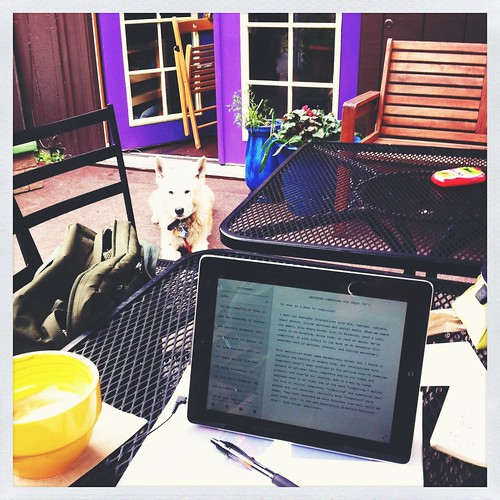Y Combinator’s Sam Altman warns about the perils of “fake work” for startups that can apply to just about any serious creative endeavor.
In general, startups get distracted by fake work. Fake work is both easier and more fun than real work for many founders. Two particularly bad cases are raising money and getting personal press; we’ve seen many promising founders fall in love with one or (usually) both of these, which nearly always ends badly. But the list of fake work is long.
I tell founders to consider how directly a task relates to growing. Obviously, building and selling are the best. Things like hiring are also very high on the list—you will need to hire to sustain your growth rate at some point. Interviewing lots of lawyers has got to be near the bottom.
This resonates with me for two reasons.
First, when I’m writing a book, I have to pull myself away from all kinds of fake work. There are lots of things that feel like they’re productive, but really aren’t. The real work is work that gets you words on the page. Everything else is fake.
Some kinds of fake work are easy to identify and avoid. Playing around with the footnotes or fonts obviously won’t get your more words on the page, even though it might make it look like there are more pages.
But other things are harder to classify as real work or fake work. Reading another article about this subject or that, spending just a little time exploring this avenue— this could be fake and probably is, but now and then it turns out to be really fruitful.
The challenge is to do a little of this kind of work, but not too much; and to avoid doing it when you have other, clear tasks at hand.
Altman continues:
So how can startups avoid this slump? Work on real work. Stay focused on building a product your users love and hitting your growth targets. Try to have a board and peers who will make you hold yourself accountable—don’t lose the urgency that you developed during YC. Keep sending updates on your traction to your investors and anyone else who will read them (in fact, we’re building some new software at YC to automate this for our startups in the hope that it prevent some of them from going off the rails). Make the mistake of focusing too much on what matters most, not too little, and relentlessly protect your time from everything else.
The other reason this resonates with me is that, in my studies of people who learned to work and rest well— who learn that rest is an essential part of their creative or productive process, who make room in their busy lives for rest, and who practice it skillfully— pretty much work, rest, and maybe have one other thing they’re devoted to (often their family), and that’s it. That’s their life.
Joe Fassler holds up Ingmar Bergmann as a great example an artist who “had extreme discipline when it came to his art and the way he ran his life around it.” For a long time his personal life was quite complicated (especially by bourgeois Swedish standards of his day), but eventually he simplified, this was a key to his amazing productivity.
For the last 25 years of his life, he was married to the same woman, and the chaos of his life had settled. He lived on a small island called Faro, north of Gotland, where he would plan his films, write the scripts, make the screenboards, and everything. He limited his activities: Besides working and thinking, he might go for a stroll. He would only drink buttered skim milk, and have one cookie in the afternoon—his ailing stomach couldn’t take more than that. In the late afternoon or evening, he would have visitors over to go and look at a movie in his cinema. And that was his routine, every day. He didn’t try to do more.
At times I think this is the real measure of whether someone will have a creative life or not: whether they look at that kind of minimalist life and think
- It would be a recipe for boredom.
- It would be a way to focus on what really matters, and to do the work they were meant to do.
If they choose the first, they should give up whatever ambitions they have of doing serious creative work. This is not to say they can’t have great, happy lives. Most people are quite content to not write books or start companies, and there are lots of unhappy writers and CEOs. But it if you can honestly choose the second, then you have a shot at doing serious work.


